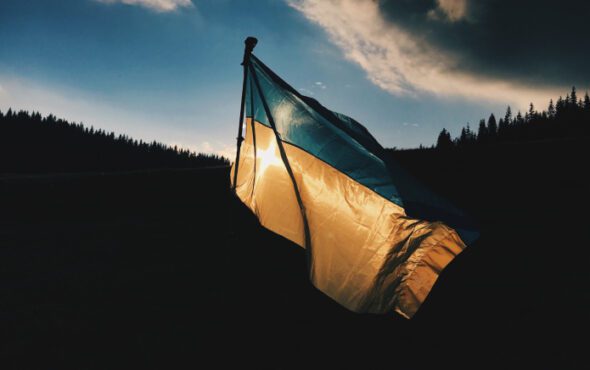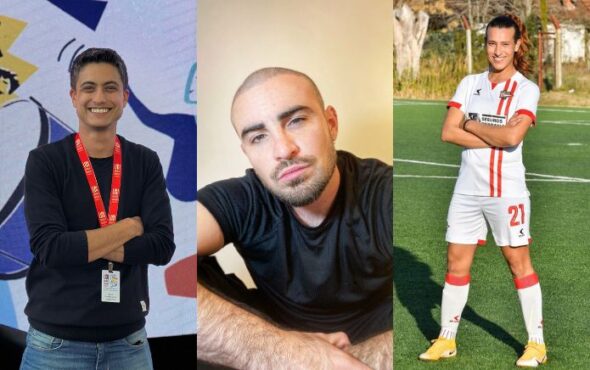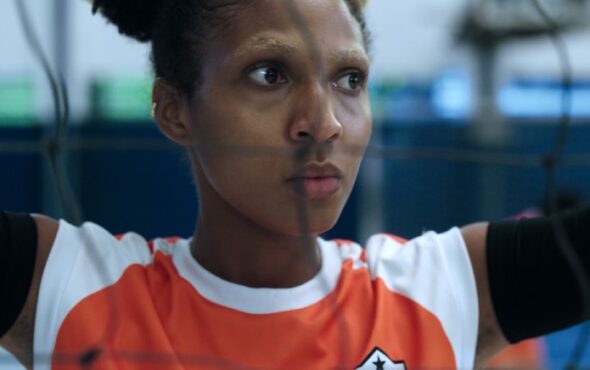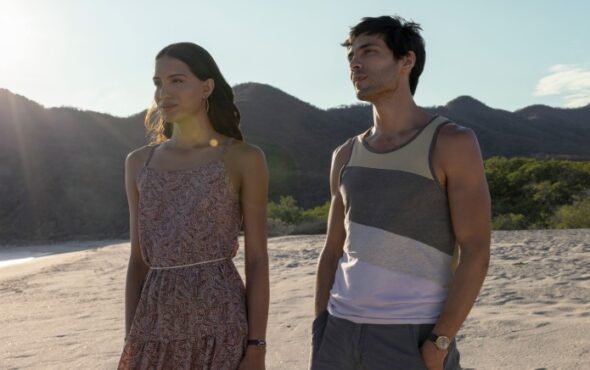
Evelyn Aschenbrenner is a U.S. citizen serving in the Ukrainian army’s International Legion of Territorial Defence of Ukraine, which is made up of foreign fighters.
I first became interested in drag kings – mostly female entertainers performing exaggerated male characters – when I saw a documentary about them in Detroit in the early 2000s and then went to see some drag king shows.
I loved it, as it’s theatrical and over the top and a lot of fun.
I identify as bisexual and genderfluid and use the pronouns they/them. I’m now 41, and if I’d been born 20 years ago, I would have thought very seriously about transitioning to a man. But being a drag king gives me a chance to express the male side of my identity.
When I moved to Poland, there was a Queernival that an LGBTQ+ group puts on every year, and they had a drag king make-up tutorial. I was, like, “You only live once!”
I found myself up on stage with a group of other kings, performing some ridiculous Polish boyband song from the mid-2000s. I wasn’t very good, but I was hooked.
It’s a fascinating art, as you have to learn how to properly perform masculinity, how you move your body and sit and carry yourself.
Before the war, I was living in Wroclaw in southwestern Poland, which has a lot of shared history and culture with Ukraine, with many Ukrainians living there.
When Russia invaded last year, I felt very strongly that this was not just some abstract war – it was happening just next door. I was very angry about what had happened.
When Ukrainian President Volodymyr Zelensky said foreigners can join the army, I said to myself, “Oh God, I’m going to do it.”
I now serve as an assistant to the personnel officer in the first battalion of The International Legion of Territorial Defence of Ukraine, which is where the foreign fighters are based as part of the overall Ukrainian army.
I’ve yet to perform as a drag king in Ukraine, but I’m working on it. I think it would be great – and I have been asked by several younger soldiers to perform at some point.
I did perform in drag in my Ukrainian uniform in Poland. I did check with fellow soldiers first to see if they felt it was disrespectful, but they were fine with the idea.
My show is all about exploring masculinity – lip-synching to songs usually sung by men and generally exploring the male side of my identity through performance. I like to perform punk and metal songs.
I’m currently based in the Kharkiv region which has a queer-friendly club, which I’ve been to a couple of times. I’ve talked to some of the drag queens there about the possibility of performing so I’m hoping it will be soon.
I remember telling someone my pronouns in the early morning hours of March last year.
It was 5.36am and we were sitting freezing in a foxhole waiting for the all-clear after a strike, watching the smoke from a recent Russian missile start to clear in the sky.
One of the soldiers was telling an Irish folk story about a woman with long red hair – which I have too – being a warrior.
“That’s cool,” I said, “but I’ve never really thought of myself as a woman.”
Then they asked what pronouns I used, and I explained I used they/them.
“OK,” they said, and it was very much a non-issue.
Sometimes, it’s a language thing. If I say I’m non-binary, they’ll probably say they don’t know what that means – and the same if you try and say you’re androgynous. So I say, “I’m not really a man or a woman.”
And the reaction that March morning was, “OK, I support that.”
“Great,” I said. “I support straight people too.”
As told to Openly editor, Hugo Greenhalgh, in Kyiv via a video call to the Kharkiv region in north-eastern Ukraine on 22 Feb.
GAY TIMES and Openly/Thomson Reuters Foundation are working together to deliver leading LGBTQ+ news to a global audience.



